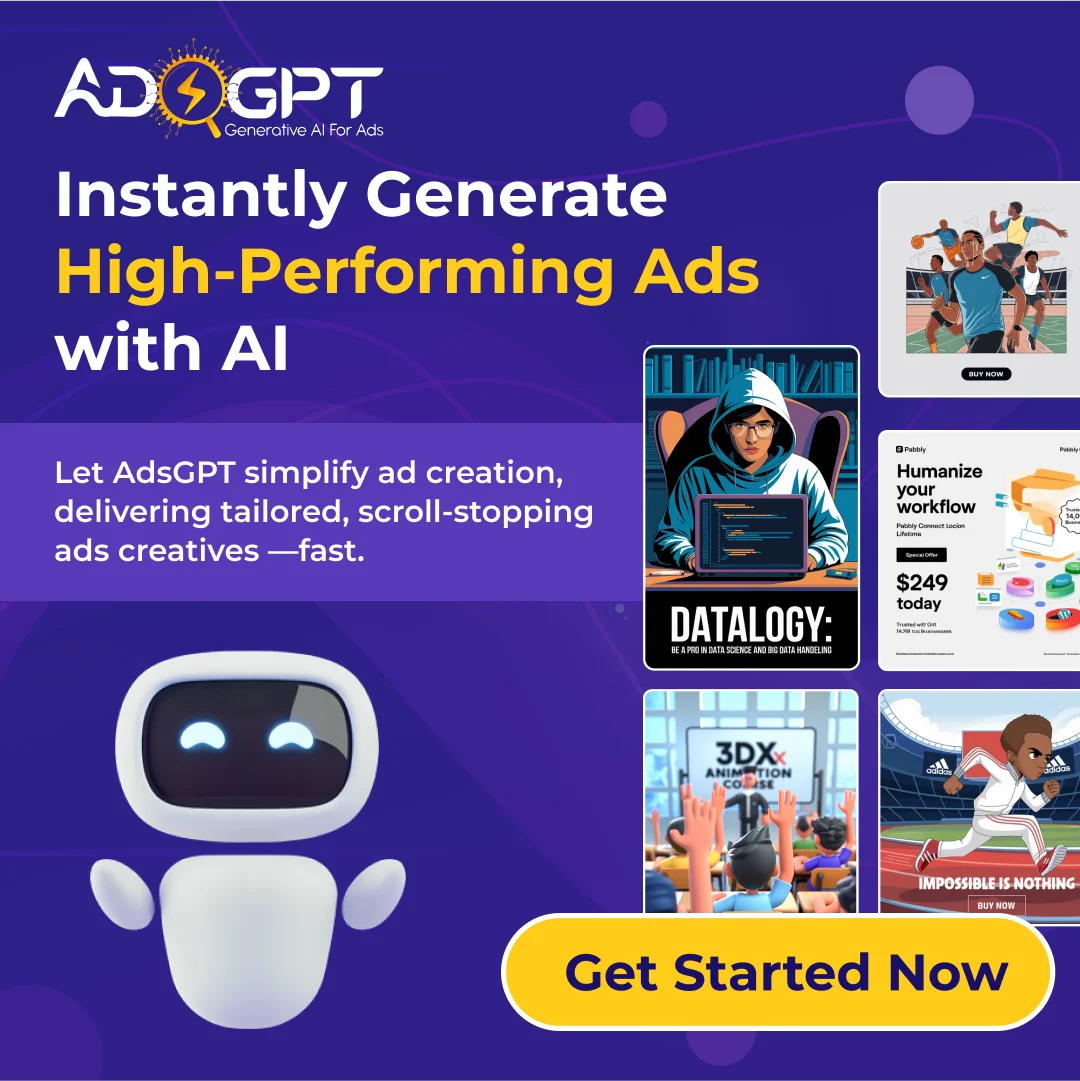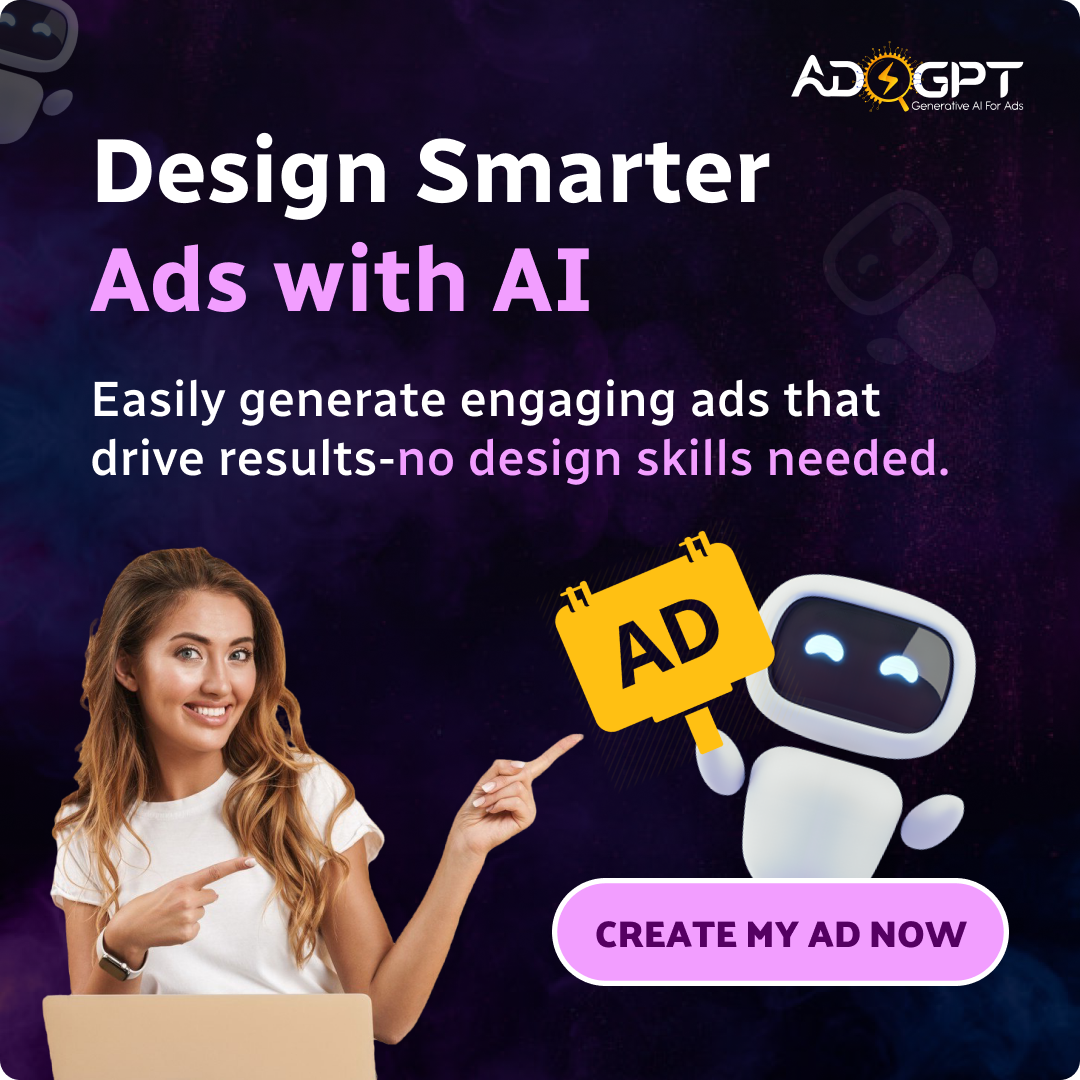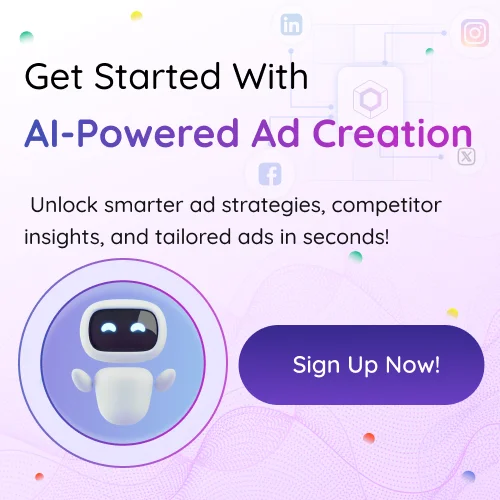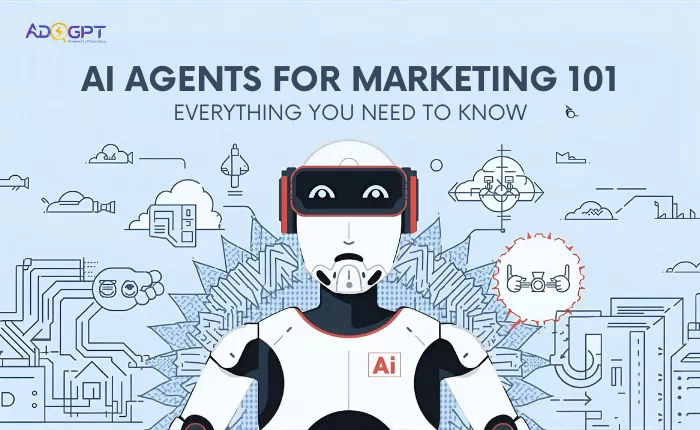
Marketing has always adapted to new technologies, but some shifts are more transformative than others. We are now entering a phase where traditional automation is no longer enough. Businesses need tools that go beyond rules and workflows—tools that can analyze, decide, and act in real time. This is where AI agents for marketing come into play, offering a smarter way to engage customers, optimize campaigns, and free up human teams for more strategic work.
Before we explore how these agents are changing marketing, it’s important to first understand what they are and why they matter.
In a hurry? Listen to the podcast now.
What Are AI Agents & Why Marketers Should Care?
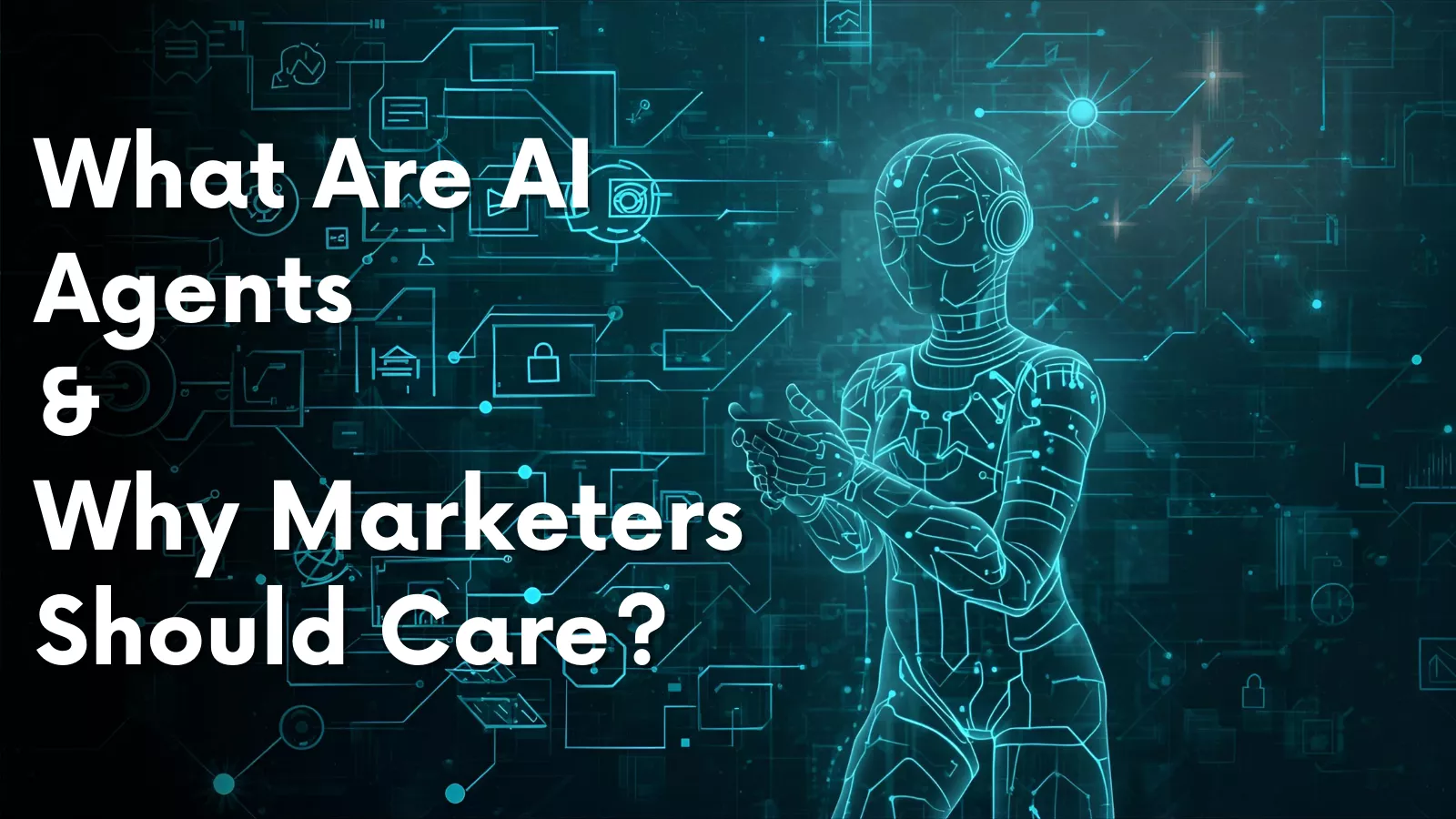 AI agents are programs that can take on roles, process data, and make decisions without constant human intervention. Unlike traditional chatbots that respond only when triggered, these agents can act proactively, anticipate needs, and move conversations or tasks forward.
AI agents are programs that can take on roles, process data, and make decisions without constant human intervention. Unlike traditional chatbots that respond only when triggered, these agents can act proactively, anticipate needs, and move conversations or tasks forward.
So, what are AI agents exactly?
Think of them as highly capable assistants that combine automation with reasoning. They are trained on company-specific data and instructed to operate within defined boundaries.
For marketers, this means the ability to manage customer queries, segment audiences, recommend products, or even launch campaigns, all while learning from past outcomes.
Understanding how these agents function is the first step. Next, we’ll look at what makes them distinct and how they fit into everyday marketing operations.
How AI Agents Work In Marketing?
The effectiveness of any agent depends on five defining traits.
- Role – every agent needs a clear purpose, such as handling customer support or guiding product recommendations.
- Knowledge – the data it draws from, whether that’s CRM records, website content, or external sources.
- Actions – the tasks it’s equipped to complete, from sending offers to updating records.
- Guardrails – rules that determine what the agent can and cannot do.
- Channels – the platforms where the agent operates, like email, mobile apps, or social media.
This structure makes them particularly useful for AI for marketing automation, where routine and repetitive jobs can be shifted to agents while marketers focus on strategy.
But how does this look in practice?
The next section dives into real-world scenarios where agents are already reshaping customer interactions.
Real-World Use Cases Of AI Agents For Marketing
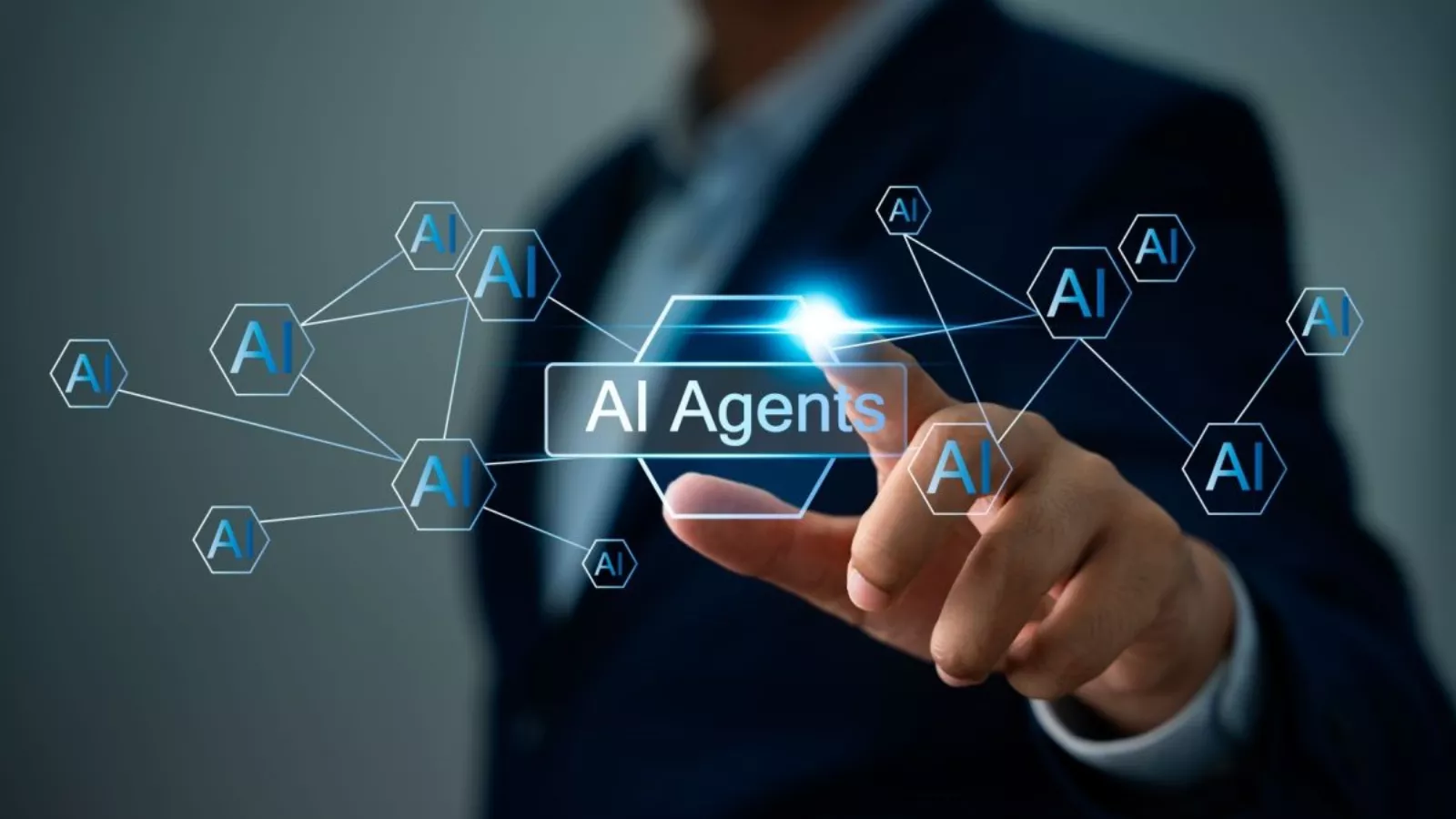 Consider customer engagement through messaging platforms. A shopper browsing a store’s website may have questions about shipping or product availability. Instead of waiting for a human agent, an AI-driven assistant can step in on WhatsApp or Messenger, answer questions, recommend a bundle, and even schedule a follow-up call if needed.
Consider customer engagement through messaging platforms. A shopper browsing a store’s website may have questions about shipping or product availability. Instead of waiting for a human agent, an AI-driven assistant can step in on WhatsApp or Messenger, answer questions, recommend a bundle, and even schedule a follow-up call if needed.
Another example is campaign optimization. Agents can track customer behavior across channels, identify the right moment to send an offer, and ensure communication feels personal. This reduces workload for teams and keeps the customer journey moving smoothly.
These scenarios highlight just how practical AI agents for marketing can be when applied thoughtfully. But beyond convenience, they also deliver measurable advantages to businesses, which is what we will cover next.
The Benefits Of AI Agents For Businesses
When businesses adopt these tools, the improvements go beyond saving time. Agents provide:
- Always-on availability: Customers no longer wait for office hours.
- Deeper personalization: Recommendations are tailored to specific preferences.
- Operational efficiency: Teams can focus on creative planning rather than manual work.
- Smarter decision-making: With access to live data, agents act with accuracy.
These benefits illustrate the broader artificial intelligence impact on business. From faster campaign execution to increased sales conversions, AI-driven tools transform how organizations connect with audiences and manage operations.
Of course, no innovation is without challenges, and adopting agents requires careful planning. Let’s transition into those considerations.
The Challenges Of Using AI Agents
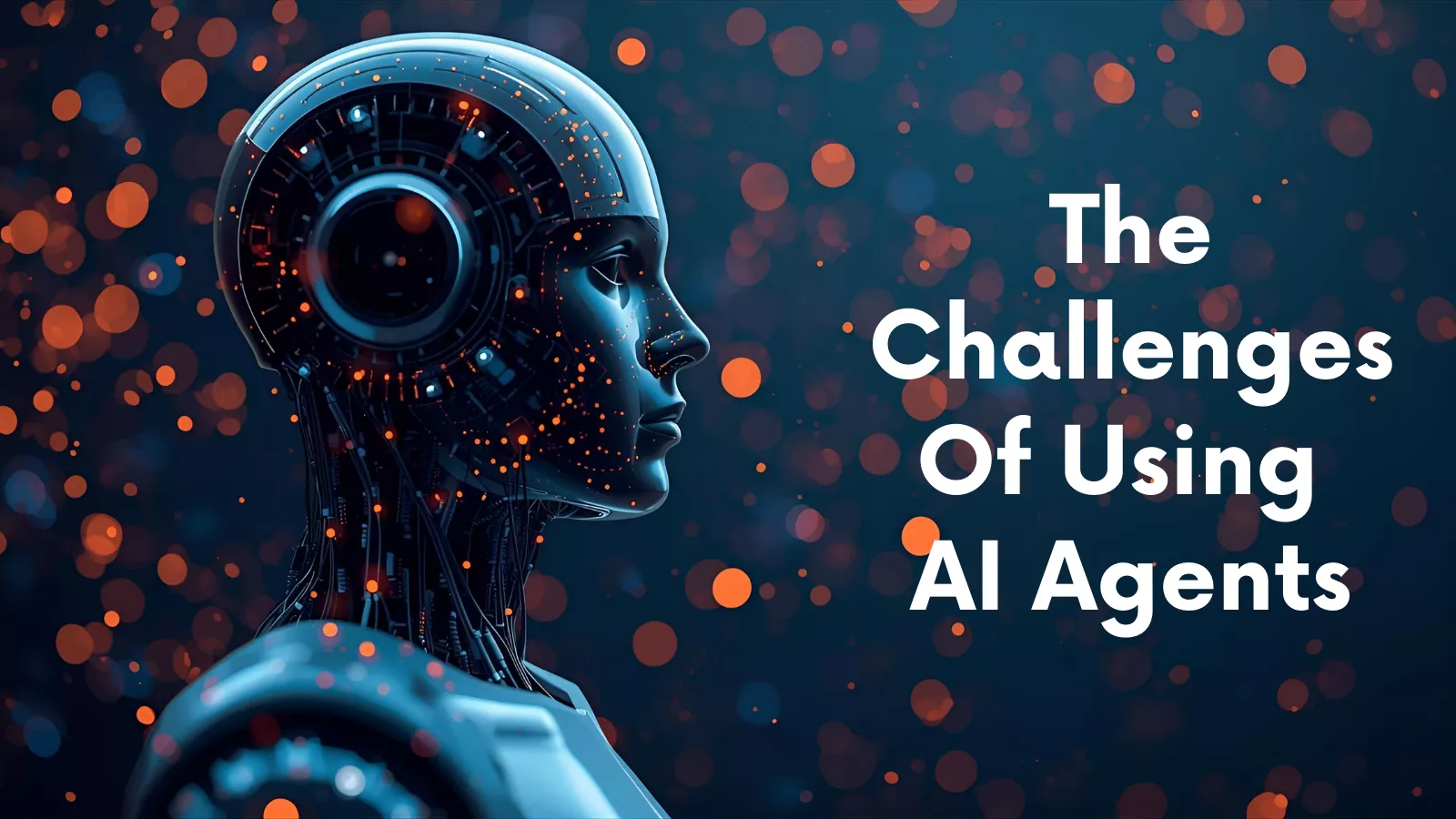 Even though the promise of agents is clear, businesses must handle potential obstacles. One key issue is data quality. If the data feeding an agent is incomplete or outdated, the output may be inaccurate.
Even though the promise of agents is clear, businesses must handle potential obstacles. One key issue is data quality. If the data feeding an agent is incomplete or outdated, the output may be inaccurate.
There’s also the matter of human oversight. Agents need guidelines to determine when to escalate an issue to a person. Without these guardrails, businesses risk confusing customers rather than helping them.
This is why many companies seek help from AI strategy consulting. By defining roles, setting clear limits, and ensuring integration with existing systems, consultants make it easier for businesses to adopt agents responsibly.
Once these challenges are managed, the real opportunity lies in how agents can change customer journeys. That’s where we turn next.
The Future Of Customer Journeys With AI Agents
Modern customers expect seamless transitions between discovery, purchase, and support. Agents play a crucial role here by keeping momentum across different stages.
For example, a customer browsing online could receive a tailored ad created with generative AI for ads, then get guided to a purchase conversation through an agent, and finally receive automated after-sales support. All of this happens without the customer feeling like they are interacting with disconnected departments.
This holistic approach shows how AI impact on business extends beyond single functions. It strengthens the entire customer journey, making it smoother and more personalized.
At this point, many marketers ask: which tools make adopting these agents easier? This brings us to AdsGPT.
Can AdsGPT Be The AI Tool That Transforms Your Ad Copy?
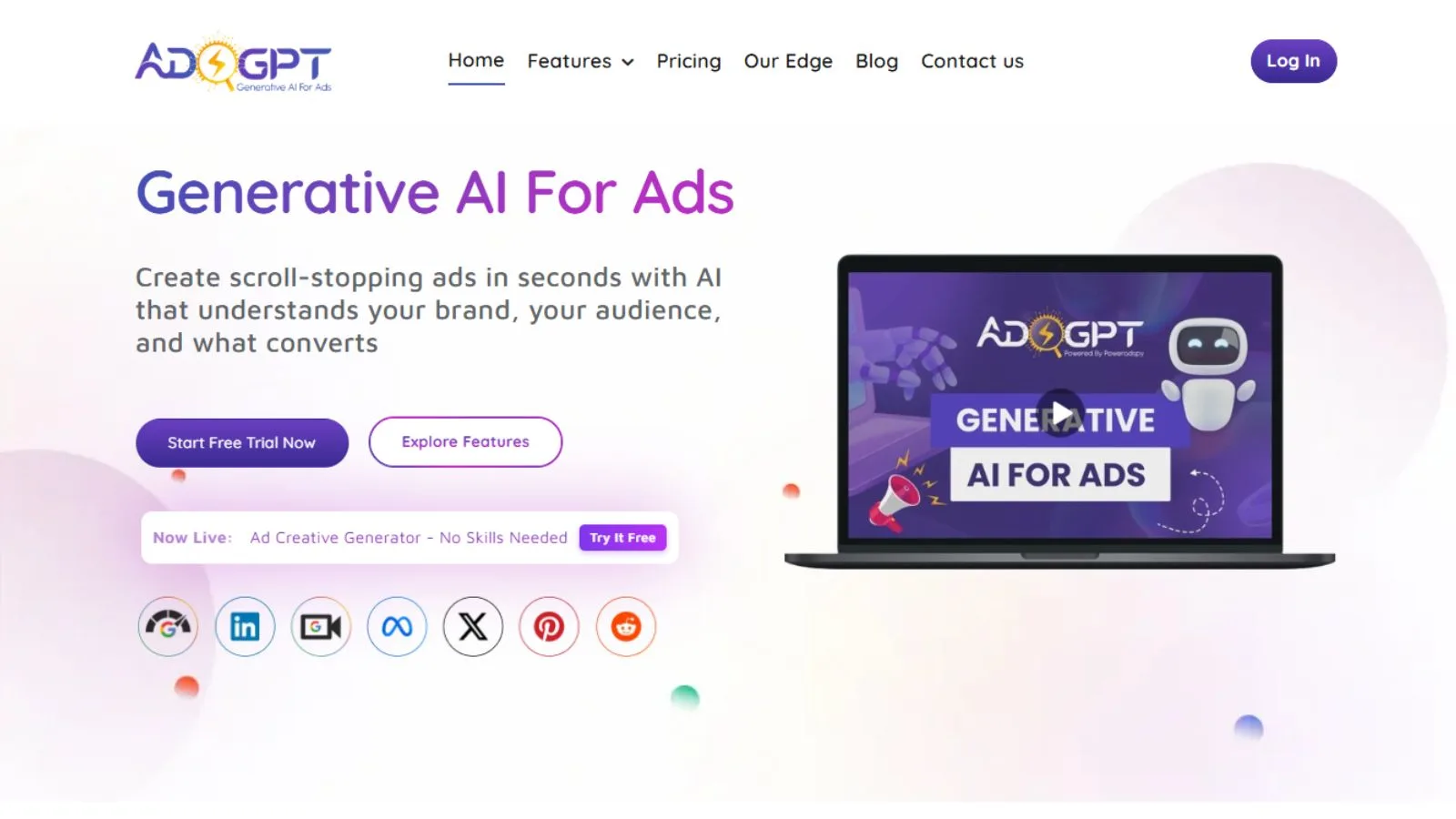 AdsGPT is a generative AI platform, and it is built to make ad writing and creative production faster and more reliable.
AdsGPT is a generative AI platform, and it is built to make ad writing and creative production faster and more reliable.
It generates platform-ready ad creatives and adapts them to the right formats, and provides marketers with clear performance insights, all without a complicated setup.
By integrating AI agents into a focused marketing workflow, AdsGPT helps teams move from idea to tested ad faster.
Here’s what sets AdsGPT apart:
Instant ad copy generation
No more blank pages. AdsGPT produces campaign-ready headlines and body copy tailored to the channel and campaign objective, letting you spin up multiple variations in moments.
AI-powered creative generation
AdsGPT does not stop at text. The platform creates visual creatives and layout suggestions that align with your messaging and brand, so copy and visuals work together from the first draft. It also supports adapting creatives to different sizes and placements to speed up multi-format production.
Platform-specific optimization
Each ad network has its own rules and best practices. AdsGPT tailors messaging and creative structure to Google, Meta, LinkedIn and others so your ads are formatted and phrased for the channels you use.
Competitor ad intelligence and inspiration
Want to see what’s working in your category? AdsGPT lets you explore live ad examples and industry trends to generate high-performing variations inspired by real ads, helping you iterate faster and stay relevant.
Together, these features make AdsGPT a practical option for teams that want speed, scale, and smarter creative decisions.
In short, AdsGPT shows how AI agents for marketing can help you produce better ads faster, with insights to back each change.
Why Now Is The Right Time To Adopt AI Agents?
Customer expectations are growing, and delays in adopting new tools can leave companies behind. Agents reduce response times, personalize experiences, and give businesses an edge in reaching their audiences effectively.
Moreover, the cost of implementing AI has become more accessible, making it feasible for organizations of all sizes. With platforms like AdsGPT providing the necessary framework, there’s less risk and more clarity about the return on investment.
Businesses that hesitate may find themselves struggling to keep up with competitors who are already benefiting from automation and intelligent decision-making. This makes adoption not just an advantage but a necessity.
Finally, let’s bring these ideas together and reflect on how marketers can lead this shift.
Read More
5 Best AI Generated Ads Examples You Need To See
Conclusion
The rise of AI agents for marketing signals a profound transformation. No longer limited to static chatbots, these tools act as proactive assistants that learn, adapt, and drive customer journeys forward.
For marketers, the responsibility lies in guiding these “smart interns” with quality data, clear roles, and ethical guardrails. With solutions like AdsGPT, businesses can adopt agents confidently, combining personalization with efficiency in ways that were not possible before.
The message is clear: the future of marketing belongs to those who embrace AI with purpose. By acting now, businesses can create meaningful connections, streamline their processes, and stay ahead in an environment that continues to evolve.
FAQs
- How do AI agents for marketing differ from traditional automation tools?
Unlike standard automation that follows preset rules, AI agents for marketing adapt in real time, analyze context, and make proactive decisions. This makes them more dynamic and effective in handling complex customer journeys. - Can small businesses also benefit from AI agents for marketing?
Yes, AI agents for marketing are not just for large enterprises. Small and mid-sized businesses can use them to handle customer queries, personalize campaigns, and scale their efforts without needing big teams. - What role does data play in the success of AI agents for marketing?
Data is the backbone of AI agents for marketing. High-quality, up-to-date information ensures that agents provide accurate responses, deliver relevant recommendations, and continuously improve with each interaction. - How does generative AI consulting support businesses adopting AI agents?
Generative AI consulting helps businesses define use cases, set guardrails, and align AI adoption with long-term goals. It ensures that AI agents for marketing integrate smoothly into existing systems while delivering measurable value. - Are AI agents for marketing future-proof?
While technology always evolves, AI agents for marketing are designed to be adaptable. With continuous updates, access to new data sources, and integration support, they remain a reliable long-term solution for modern businesses.


